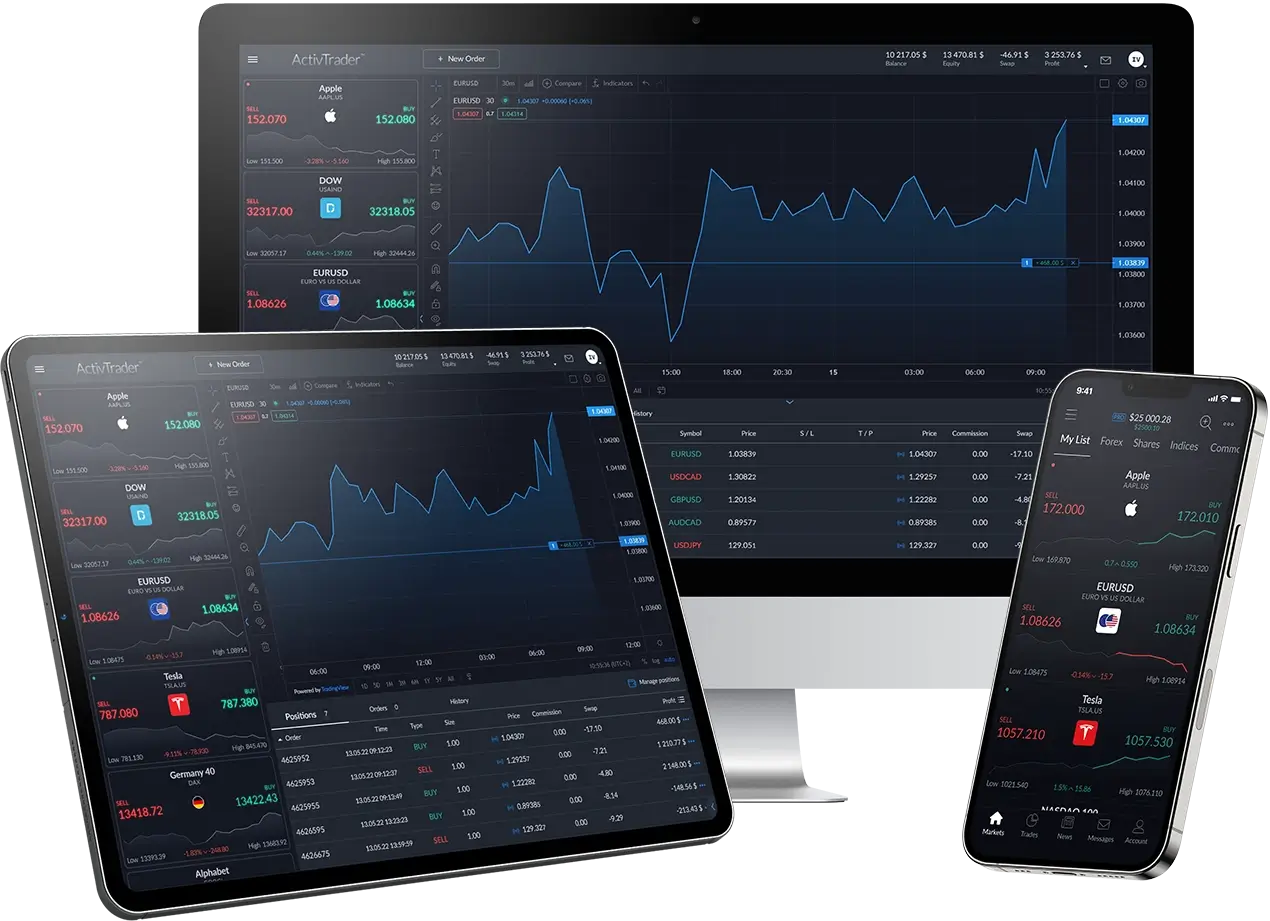
Invest in ETFs
With Any Capital
Trade ETFs with any size of account
Transparent
Pricing
No hidden fees for opening or closing trades
Go Long
or Short
ETF CFDs allow for both long and short positions
Funds Protection
All client deposits are insured and held in segregated accounts
Award-Winning Support
Our support professionals have a 95%+ client satisfaction rate
Best-in-class execution
Over 93.6% of orders filled at the requested price or better
Trade ETFs With Transparent
Pricing and No Hidden Fees
Diversify Your Portfolio
With 1000+ Instruments Across 7 Asset Classes

FAQ
Need help?
Try our award winning support!
Chat
Call
An ETF, or exchange traded fund, is a type of investment fund that’s traded over an exchange, like an ordinary stock. These funds work by having an investment thesis of their own (e.g. green energy, or disruptive technology) which they use as a guide to purchase assets that fit into that specific thesis.
An ETF can hold all manner of assets in its portfolio including stocks, bonds, currencies, commodities, crypto, and more. When you purchase the ETF, your capital is proportionally exposed to all the underlying assets the ETF owns.
The ETF itself tries to maintain its valuation at a level that’s comparable to the net asset value of all the assets it holds, however, depending on the sector, it’s not unheard of to have ETFs trade at a premium when compared to the assets held.
The real value of ETFs is that they allow investors to allocate capital to specific “themes” without having to trade the underlying assets they hold. ESG (Environmental, Social, and Governance) ETFs are an example of an investment that follows a specific philosophy. The same goes for crypto or emerging market ETFs.

